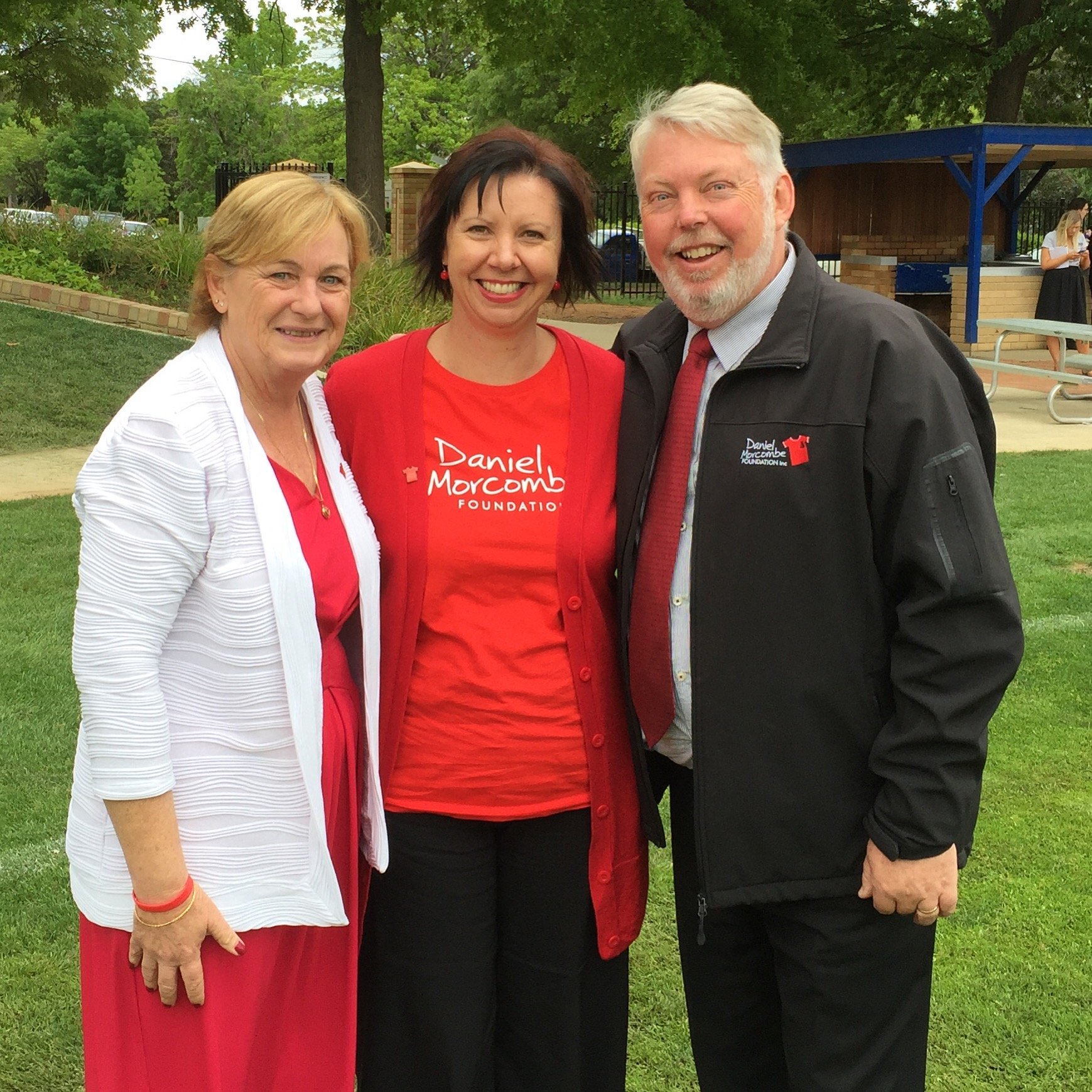Ursula
Ursula Barwick is my cousin, more like my sister. In 1987, when she was 17 and I was almost 15, Ursula disappeared. It took 30 years to find her.
Every person who knew Ursula, both those who grew up with her, those who were close to her, and those who only said a casual hello to her in the school yard or up the street, all remember the same things. Ursula was always laughing, always smiling, always having fun.
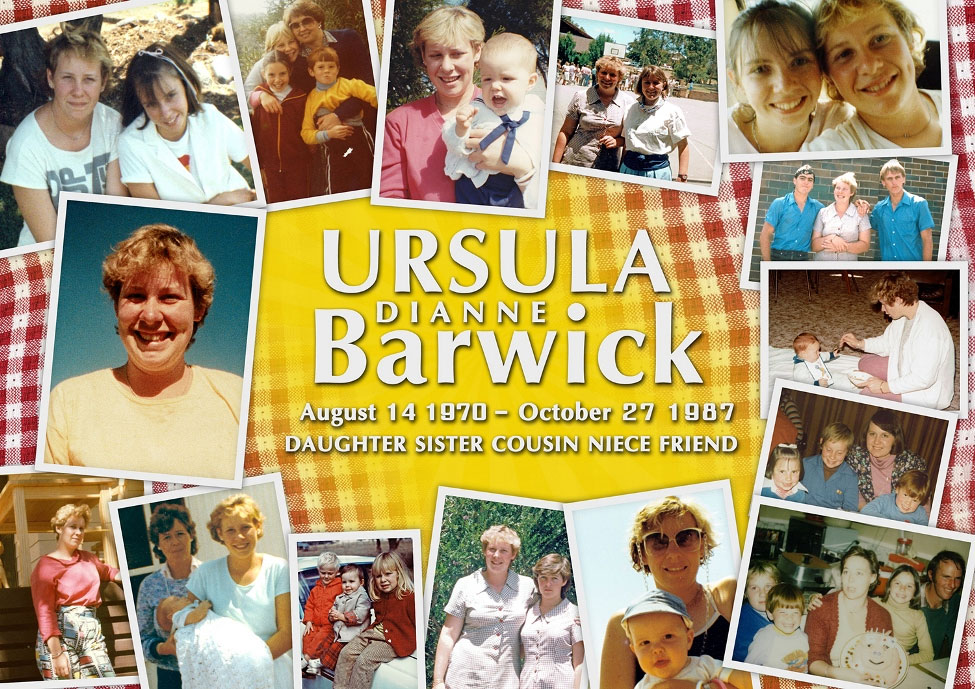
At the heart of my writing is a desire to help the broader community understand what it’s like when someone you love goes missing.
Write About Me prompted a new investigation into Ursula’s case. My life became a rollercoaster where I swung from hope to despair then back to hope again. After the reaction to my first book, and a realisation that the wheels turned slow for long-term missing cases, I vowed to publish a book a year until Ursula was found. Five novels later, she was. Sadly, she died in a car accident just weeks after she disappeared. It took 30 years to uncover the truth.
We are fortunate to have found Ursula, and I am grateful for Kings Cross detectives Kurt Hayward and Amy Scott and Strike Force Hemingway for never giving up. I also had the incredible support of the Australian Federal Police National Missing Persons Coordination Centre, Families and Friends of Missing People, the Australian Missing Persons Register and the Missing Persons Advocacy Network (MPAN). This collective support, along with support from family and friends who knew, loved and missed Ursula so much, is what got me through the during and after.
Unable to reveal the truth
One of the hardest parts about embarking on a public appeal to find Ursula was trying to navigate around the media interest in her case. This became particularly difficult after detectives found Ursula, but were still working diligently to gather the necessary evidence to present to the coroner.
Back in 2017, I spoke to ABC Western Victoria about the launch of my novel FOUND.
At the time of the interview I knew Ursula had been found and think I do a very good job of side-stepping his question as I was not in a position to share the news at that time.
I love this interview in so many ways as it also reminds me of my passion for writing and for raising awareness for missing people.
Coronial process
Due to the complexity of Ursula’s case, the coronial process dragged on for several years after she was found. NSW Coroner Lee delivered his findings on November 2, 2021.
Ursula’s story featured on Australian Story in 2019 and again in 2021.

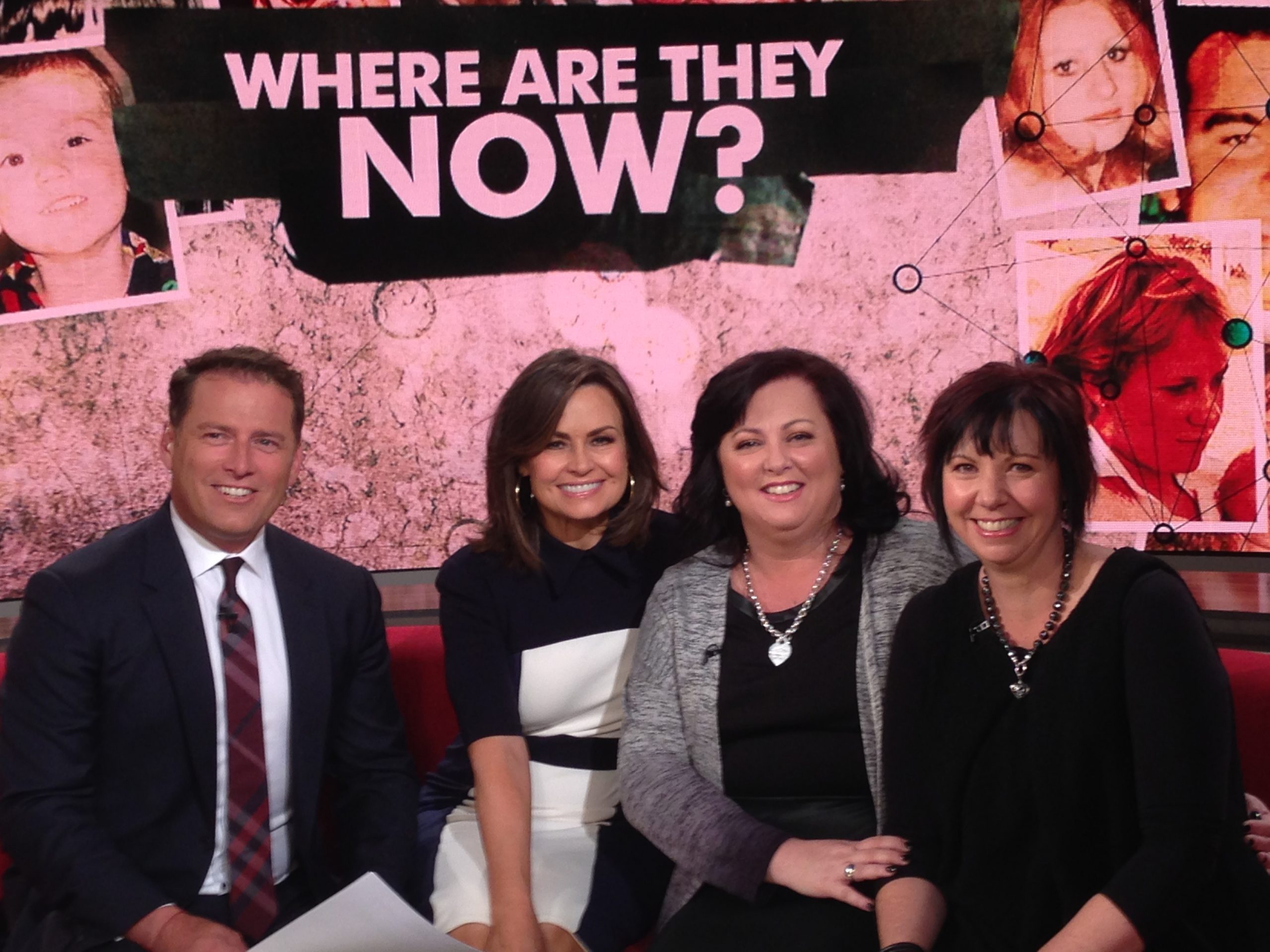
Has someone in your life gone missing?
When someone goes missing, many more are lost…this is why Melissa Pouliot, the family member of Ursula Barwick, missing since 1987, launched Picnic for Missing in 2014 as part of National Missing Persons Week.
What is Picnic for Missing?
Picnic for Missing is part of National Missing Persons Week (the first full week in August). This is a week where the Australian Federal Police National Missing Persons Coordination Centre puts its full attention and focus on raising awareness for missing people. This is also a week of heightened interest by the media and broader community to highlight the many issues surrounding missing people.
Picnic for Missing is an opportunity for friends and families to celebrate the life of a loved one who has gone missing from their lives. It also provides a real and genuine opportunity for all families of people still missing to reignite hope for their loved one.
When is Picnic for Missing? I started Picnic for Missing by having picnics for Ursula to help keep attention on her case. One of the biggest challenges for families of long-term missing people is that the media is more interested in current, new ‘news’ and more often than not, years pass without anything new. reinvigorating fresh hope for families and friends. By having a picnic, an event that is current, the media are more likely to cover it and give your case some attention, especially during National Missing Persons Week. But you can have your Picnic for your missing loved one any day of the year.
Who inspired Picnic for Missing? The inspiration behind Picnic for Missing is my first cousin, Ursula Dianne Barwick, who went missing in 1987, aged 17. I launched Picnic for Missing in 2014 in Bell Park in our hometown of Quirindi in memory of the childhood picnics I enjoyed with Ursula.
Found
This is my very emotional interview with ABC Canberra on the eve of my book launch of Found in July 2017.
Mum and I couldn’t find the studio so I was late and worried I had missed the interview, and in our panic we had set the car radio to the wrong channel so Mum didn’t get to listen until thankfully they posted it online with this comment: Melissa shocked Laura Tchiliguirian by telling her some startling news about Ursula.
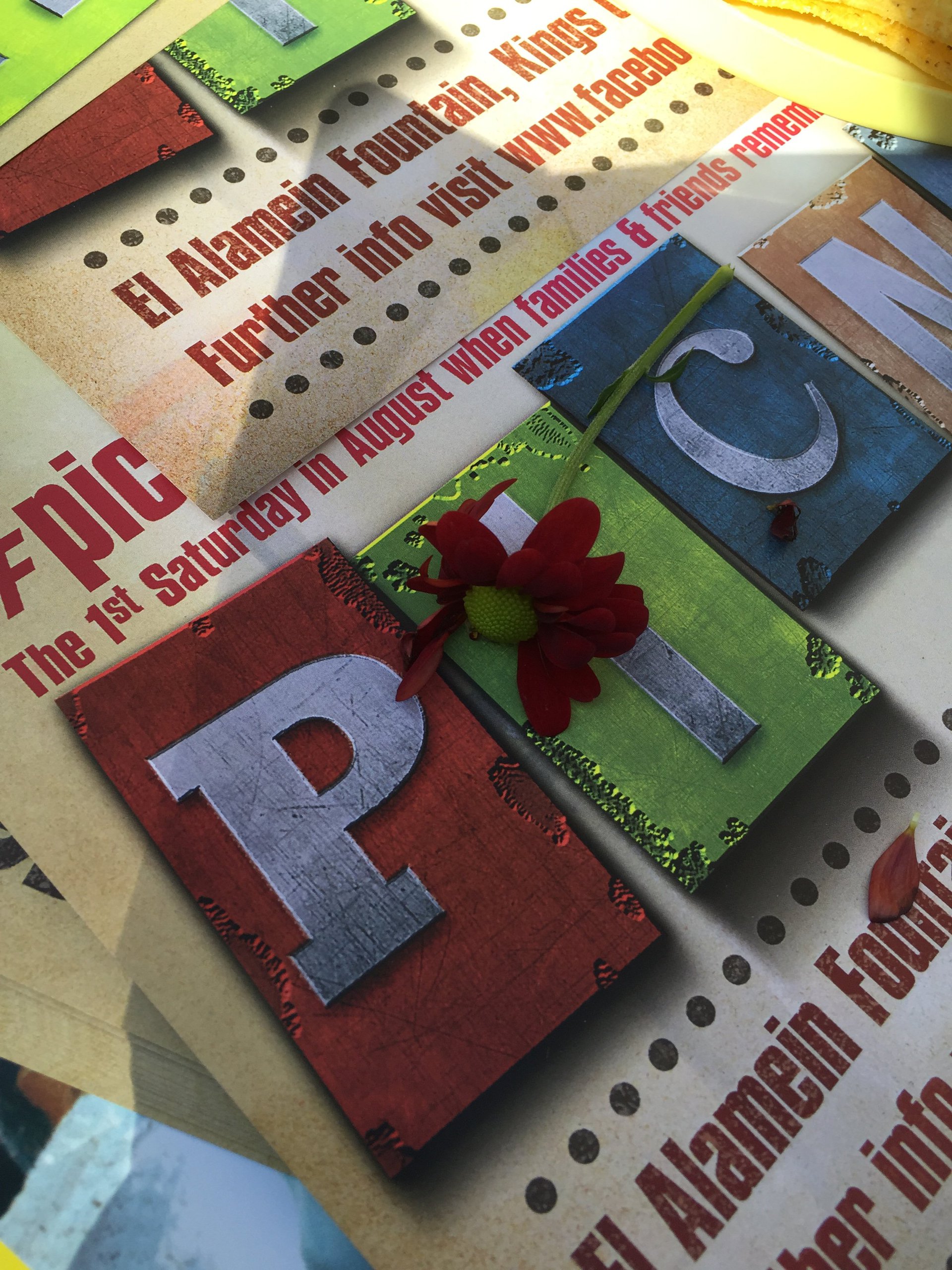
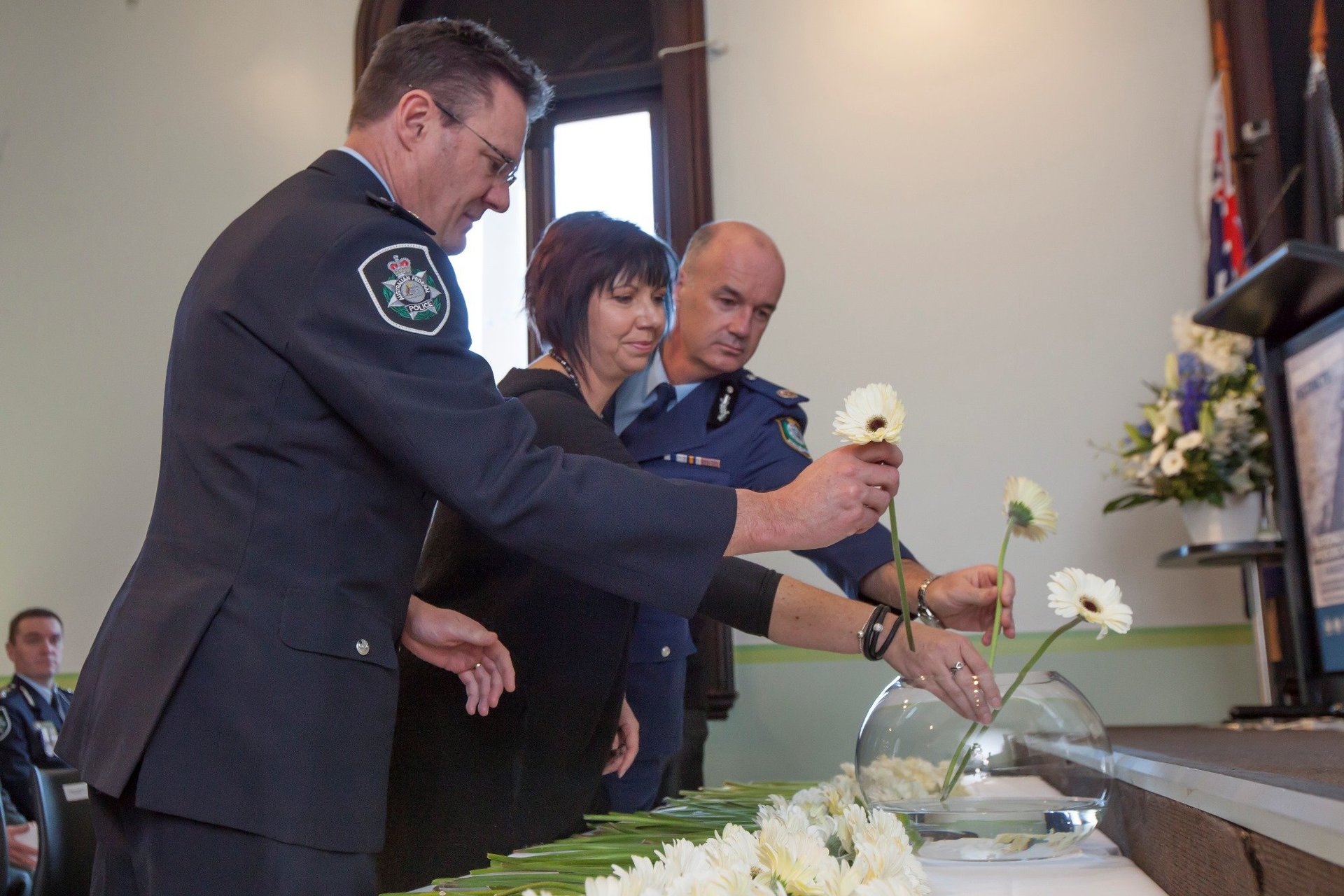
Melissa says:
“Through Picnic for Missing I aim to inspire other families in a similar situation to never give up hope.”
Everyone is invited to have their own Picnic for Missing
Picnic for Missing is another avenue and opportunity to put the spotlight on the important community issue of missing persons, which affects an estimated 420,000 people in Australia every year. The most current statistics are that 145 people are reported missing in Australia every day (2022). Anyone, anywhere in the world, can have a Picnic for Missing. It can be a grand event in a public place, or a quiet picnic on an isolated beach.
Daniel Morcombe Foundation
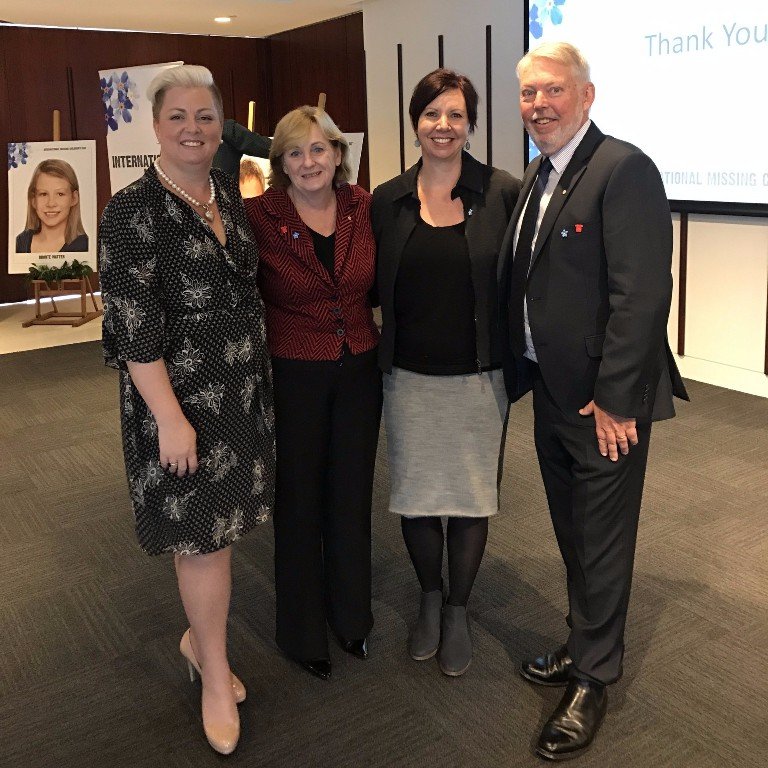
Melissa first met Denise Morcombe in 2014. As a result of that meeting she returned to her home region and contacted schools and local businesses so they could be involved in Day for Daniel.
Since 2015 she has been a Day for Daniel Ambassador, getting schools and businesses in her NSW South Coast community involved in this important child safey event.
As the 2015 Ambassador she worked with the Australian Federal Police to bring the DMF Safety Truck to the South Coast for the first time, where the head of the National Missing Persons Coordination Centre at the time Rebecca Kotz delivered safety talks to over 2000 students on behalf of Bruce and Denise Morcombe.
This tour visited schools from Batemans Bay south to Pambula and everywhere inbetween.
Sadly we lost our beautiful Beck in 2022 to cancer, and I miss her dearly, but I am so extremely grateful for what she did for my family in finding Ursula. Her legacy will live on in her own children and in her many friends, family and work colleagues who all adored her sense of humour and her passion for the families of missing people and life in general.
LEFT: Bruce, Denise, Rebecca and Melissa catch up at the 2017 International Missing Children’s Day launch in Canberra.
Day for Daniel
“As a parent and the family member of a long-term missing person I am passionate about supporting awareness and prevention. I am proud to support the modern and progressive approach by the foundation to give our children the skills to stay safe both in the real world and online. I became involved in Day for Daniel in an effort to spread the reach of the foundation to the NSW South Coast. I was thrilled to be part of the Capital to Coast tour in 2015 involving 16 schools and more than 2000 children from Canberra to Pambula and everywhere inbetween, and I am keen to see even more schools in regional areas get involved and include the Foundation’s child safety messages in their curriculum.”
RIGHT: Denise, Melissa and Bruce at the launch of the 2015 Capital to Coast Tour
